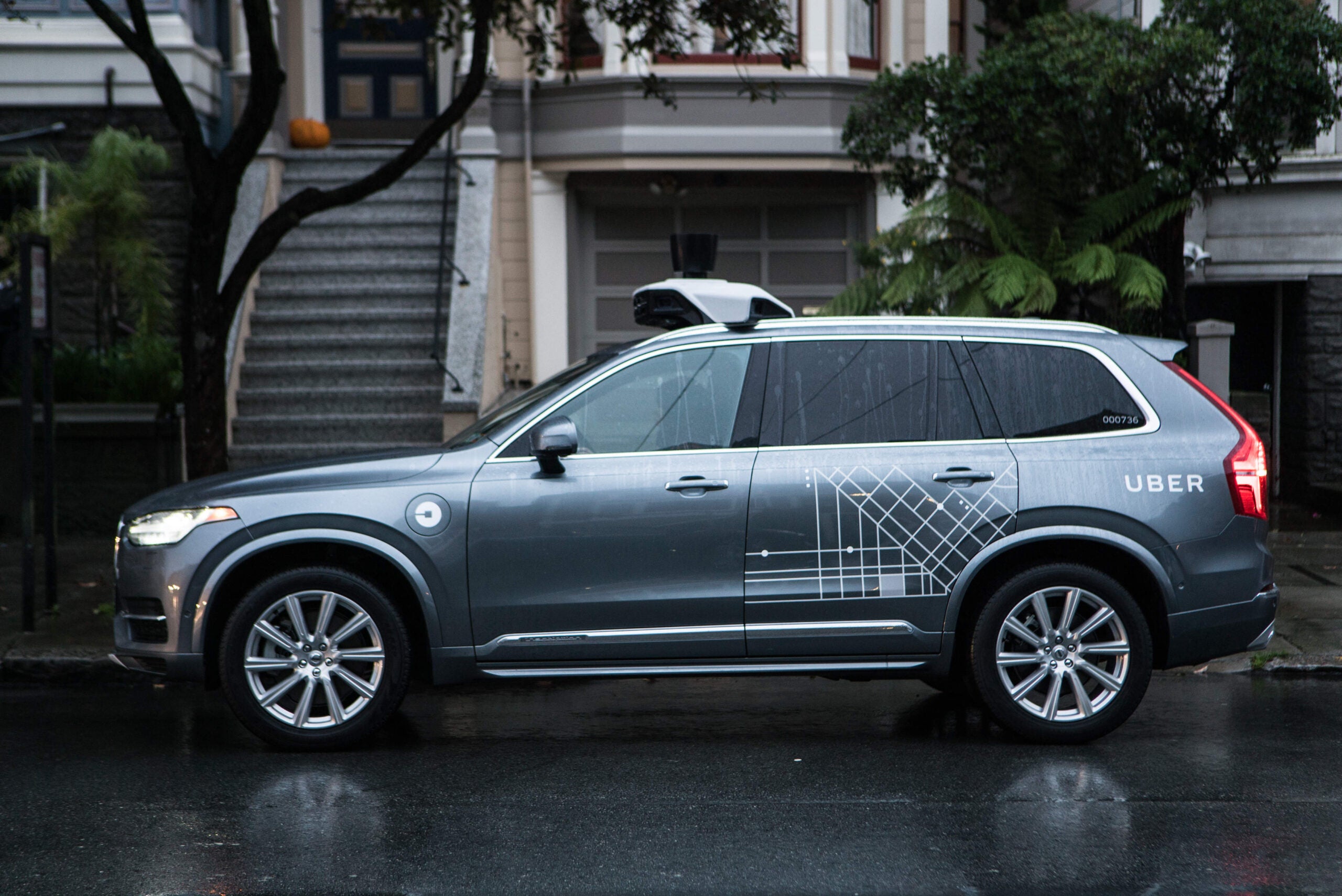
Before GM, Ford, Toyota, Renault, Tesla and pretty much all major carmakers jumped in, the driverless car scene was dominated by two names that had little to do with car manufacturing – or anything outside software development: Google’s Waymo and Uber.
The San Francisco “e-hail” company started experimenting with self-driving vehicles in Pittsburgh, Pennsylvania in 2015, after poaching a dozen robotics researchers from Carnegie Mellon University. For the company, getting its hands on proprietary self-driving tech was a matter of survival: Uber has yet to achieve a profitable business model, and cutting “driver-partners” out of the equation could equate to a huge cost savings boost.
The future benefits arguably justified the enormous capital expenses that went into the “Advanced Technologies Group” unit: according to tech news site The Information, Uber reportedly spent between $125m (£98m, €109m) and $200m every quarter just on self-driving research and development (R&D), splurging some $2bn in total over the past three years.
For comparison, Volvo Car’s R&D expenditure in the first quarter of this year was $225m – but self-driving cars, which the Swedish carmaker is also looking to roll out on the future, were just one part of its R&D efforts.
Speaking of Volvo, Uber ordered some 24,000 vehicles from the carmaker at the end of last year to test driverless tech on in Pittsburgh, San Francisco and other US locations such as Arizona. But Uber did not want to stop at driverless cars: the company soon took aim at self-driving trucks, a space that once again put it in competition with – you guessed it – Waymo and Tesla.
If it sounds like the last 18 months were when Uber put the pedal to the metal for driverless cars, that is also when the initiative hit the biggest roadblocks.
How well do you really know your competitors?
Access the most comprehensive Company Profiles on the market, powered by GlobalData. Save hours of research. Gain competitive edge.

Thank you!
Your download email will arrive shortly
Not ready to buy yet? Download a free sample
We are confident about the unique quality of our Company Profiles. However, we want you to make the most beneficial decision for your business, so we offer a free sample that you can download by submitting the below form
By GlobalDataIn February 2017, Google’s Waymo filed a US lawsuit against Uber, alleging that a former Waymo employee, Anthony Levandowski, planned to use trade secrets in the self-driving business he subsequently started, Otto, which was acquired by Uber in 2016.
The lengthy and vehement trial came to a sudden close a year later, when Uber gave up 0.35% of its market valuation – or £245m out of $72bn – to Waymo in equity. But in the meantime, the e-hailer’s self-driving efforts had taken another wrong turn. In March, a vehicle being tested on Arizona roads hit a pedestrian, killing her.
The incident, caused by one of the Volvo vehicles of which above, had the dubious honour of being the first death involving a driverless car and a pedestrian (the first vehicle-on-vehicle fatality involved a Tesla pilot in China). It put a stop to self-driving testing in Arizona for a good four months before the company resumed it again – but with a higher degree of pilot control involved.
But self-driving hiccups are not the only – and probably the top – concern at Uber. The company’s core business is under increasing threats of regulatory crackdowns, unionisation of drivers and fierce competitions by natives in markets outside the US and Europe – China and India being prime examples. And in the wake of a series of scandals around the world, chief executive Travis Kalanick had to resign, with Expedia’s Dara Khosrowshahi taking his place.
It is not surprising, then, that according to The Information article above, Uber investors are pushing for the company to offload the dollar-guzzling Advanced Research Group. Uber has already announced it is terminating autonomous truck research, and the passenger cars effort could soon follow.






